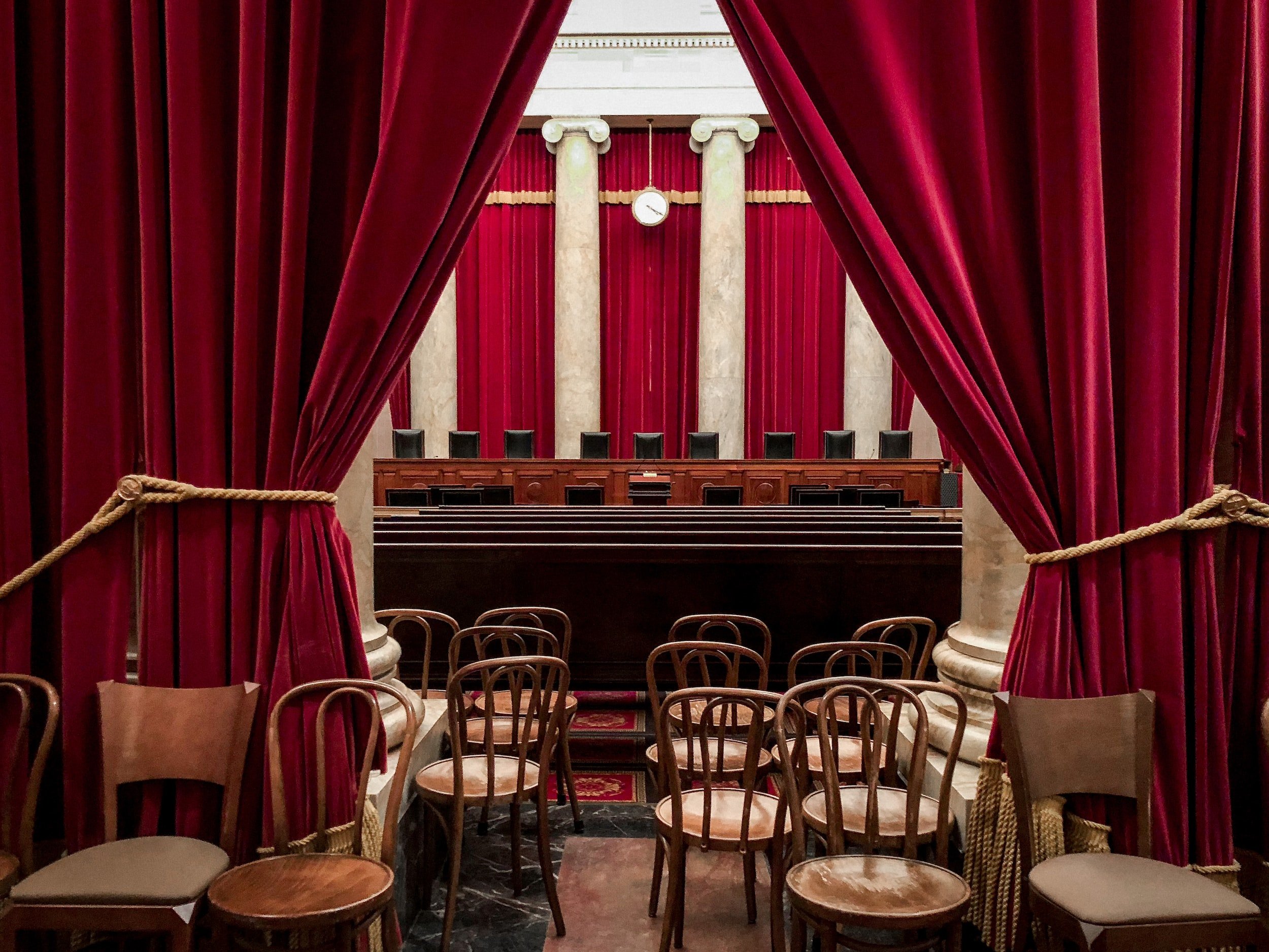Gideon v. Wainwright (1963)
Constitutional Connection
6th Amendment
Gideon v. Wainwright (1963) was a landmark U.S. Supreme Court decision in which the Court ruled that the Sixth Amendment of the U.S. Constitution requires U.S. states to provide attorneys to criminal defendants who are unable to afford their own. The case extended the right to counsel, which had been found under the Fifth and Sixth Amendments to impose requirements on the federal government, by imposing those requirements upon the states as well.
Key Facts
Clarence Earl Gideon was charged in Florida state court with felony breaking and entering. When he appeared in court without a lawyer, Gideon requested that the court appoint one for him. According to Florida state law, however, an attorney may only be appointed to an indigent defendant in capital cases, so the trial court did not appoint one. Gideon represented himself in trial. He was found guilty and sentenced to five years in prison. Gideon filed a habeas corpus petition in the Florida Supreme Court, arguing that the trial court's decision violated his constitutional right to be represented by counsel. The Florida Supreme Court denied habeas corpus relief.
“The right of one charged with crime to counsel may not be deemed fundamental and essential to fair trials in some countries, but it is in ours. From the very beginning, our state and national constitutions and laws have laid great emphasis on procedural and substantive safeguards designed to assure fair trials before impartial tribunals in which every defendant stands equal before the law. This noble ideal cannot be realized if the poor man charged with crime has to face his accusers without a lawyer to assist him.
”
Big Question
Does the Sixth Amendment's right to counsel in criminal cases extend to felony defendants in state courts?
Holding
9-0 The Sixth Amendment's guarantee of a right to assistance of counsel applies to criminal defendants in state court by way of the Fourteenth Amendment.
In a unanimous opinion authored by Justice Hugo L. Black, the Court held that it was consistent with the Constitution to require state courts to appoint attorneys for defendants who could not afford to retain counsel on their own. The Court reasoned that the Sixth Amendment's guarantee of counsel is a fundamental and essential right made obligatory upon the states by the Fourteenth Amendment. The Sixth Amendment guarantees the accused the right to the assistance of counsel in all criminal prosecutions and requires courts to provide counsel for defendants unable to hire counsel unless the right was competently and intelligently waived.
Impact of case
Gideon guarantees that all defendants are afforded a court appointed lawyer in any state or federal trial. The right to appointed counsel has been extended to misdemeanor and juvenile proceedings. Today, states and localities make use of a variety of systems to provide indigent defense, from state- and county-based public defenders, to appointment systems that reimburse private attorneys who represent indigent defendants.
Connections
Gideon v. Wainwright (1963) overturned the precedent set in Betts v. Brady (1942).
Critical Questions
How does the Gideon case relate to the guarantees outlined in the 6th Amendment?
What is the connection between the Betts v. Brady and Gideon v. Wainwright?
Do you agree with the Court’s decision to grant counsel to Gideon (and by extension to all of us)?
The ruling in the Gideon case was 9-0. Why are unanimous rulings less prevalent now than they were in the mid-twentieth century?
How would our country be different without the ruling from Gideon?
Resources
Oyez - Gideon v. Wainwright
Oyez - Betts v. Brady
Lyrics to 6th Amendment by Sons of an Illustrious Father
Get AP exam-ready with diagnostic tests, online review games, test review sheets, practice quizzes, full-length practice exam, and self-guided writing workshops. We'll make studying a breeze.





















